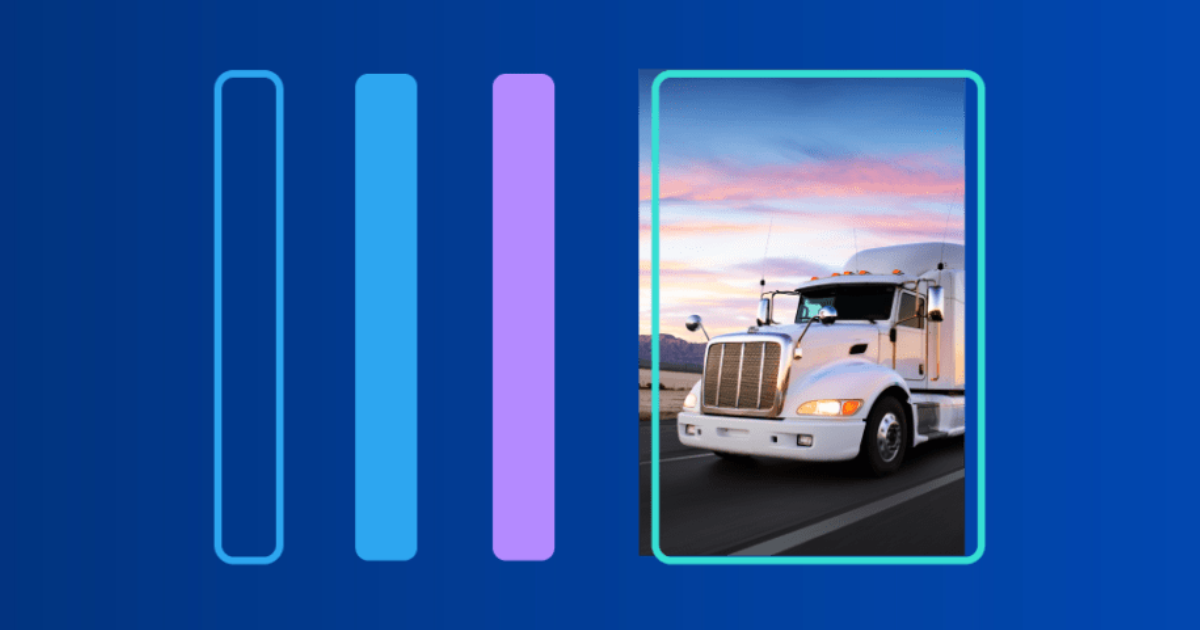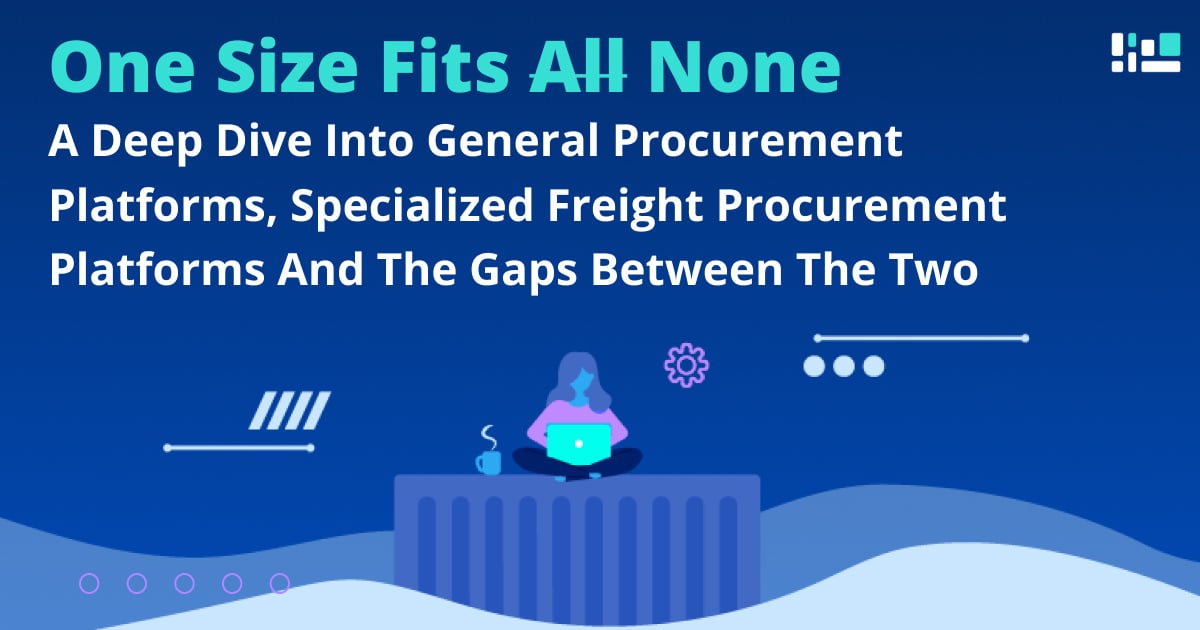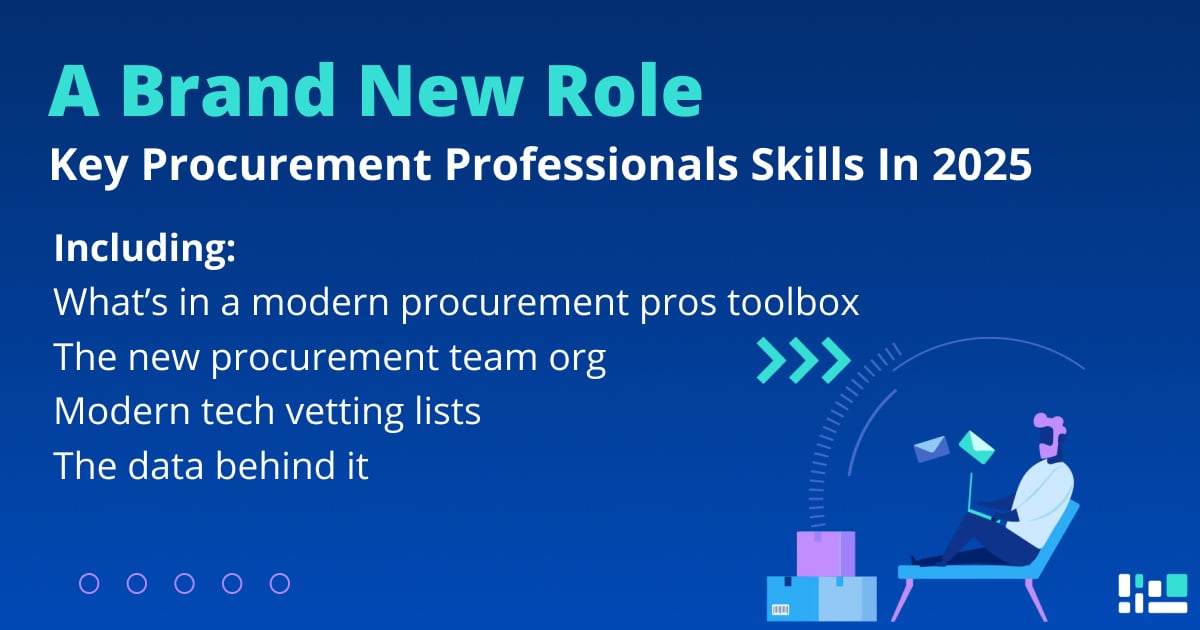Every industry uses its own language which can sound quite cryptic to people outside the sector. But for people in the know, these are everyday terms.
There are few industries where this is as true as the logistics industry, especially when it comes to the different ways in which freight rates are purchased. What is the difference between procurement, sourcing and tendering? Or Spot buying and contract buying? Here's the breakdown you need, so you can look like an industry insider to even the most senior logistics leaders.
What does procurement mean?
The word procurement means purchasing. Procurement is therefore the generic term for the operational purchasing process and includes everything which relates to the purchase of materials or services from companies and organisations. In our context of logistics purchasing, in particular, it includes the procurement of freight rates.
What is eProcurement?
You may have seen the term 'eProcurement' online. So what's the difference between procurement and eProcurement?
eProcurement is the digital version of procurement. This means procurement processes are performed using a digital platform, instead of spreadsheets or on the phone.
What is sourcing?
Sourcing stands for procurement strategies in purchasing. It's the company’s own plan for which suppliers, freight and services they will obtain – and for what period of time.
It is important to find the optimum supplier for your own needs at the best price. This requires a detailed analysis of the market and an extensive comparison of products and quotes from a wide range of suppliers. Sourcing is extremely analytical and is the foundation for the entire procurement process.
What is eSourcing?
Just like eProcurement, eSourcing is the digital version of sourcing. Freight procurement professionals use digital platforms to find new and manage carriers and digitally analyse quotes to find the best combination of offers.
What does tendering mean?
One way of procuring contract transport services is through logistics tendering. A logistics tender is when shippers request carriers to quote for their business (shipping their goods) using an 'invitation to tender'.
The shipment and transport data is prepared before the invitation to tender so carriers can see how much and what type of cargo the shipper wants to transport and on which lanes. Once the tender data is prepared, it is sent to the carriers so they can analyse the shippers needs and quote a price based on their requirements.
Shippers then assess the quotes to determine which service provider has offered the best terms under the required conditions. They compare the quotes using different scenarios, such as an incumbent scenario (the cost of staying with the same carriers they're currently using) or a 'best price' scenario (the cheapest quote combination).
Shippers will usually choose several carriers to work with for different lanes - or even contract multiple carriers for one busy lane.
What is the difference between contract buying and spot buying?
If a suitable supplier or logistics service provider is found for cooperation, there is a difference between long-term contracts, called contract buying, or short-term contracts called spot buying.
In contract buying, a long-term tender is issued and the fluctuations in the rate prices are taken into account so that the freight rates are fixed for the entire term of the contract. Contract buying is the right choice when someone needs to have something transported from A to B regularly. The right timing of the rate purchase is important as rates fluctuate on a seasonal basis. Therefore a long-term rate purchase that runs over peak season will lead to a higher rate overall.
In spot buying, daily rate prices play the central role. Purchase prices are much more dynamic and can fluctuate heavily depending on the time. Spot buying is more suitable for those who want need to move one-off shipments or occasional transports.
Want to learn more about freight procurement? Download our industry whitepaper to learn the key opportunities shippers can leverage in 2023.
About SHIPSTA
SHIPSTA powers smart logistics procurement with a digital platform that connects shippers and carriers to ensure a frictionless procurement process for spot and contract buying, entirely online. It automates complex tasks, provides unrivalled visibility and supports fast data-driven decision-making. Designed and built by experts in logistics procurement, it is bringing transparency, automation and efficiency to the global logistics industry. It is used by some of the world’s largest companies to respond to market volatility, control freight costs and manage risk. The company was founded in 2015 and is based in Mertert, Luxembourg and Hamburg, Germany.
.png?width=829&height=262&name=Ocean%20Campaign%20Email%20Footer%20(1584%20%C3%97%20500px).png)


